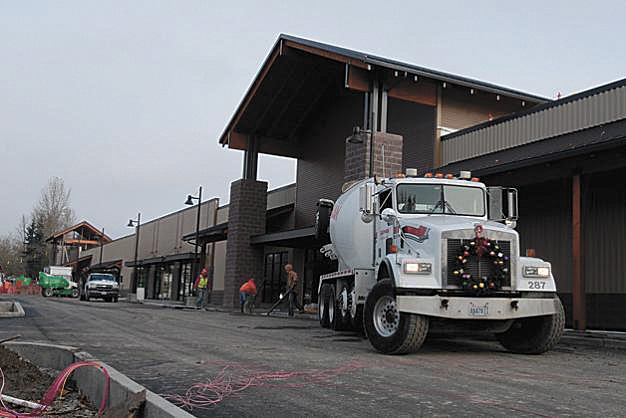A new study asserts that the arrival of Walmart stores in local communities leads to a drop in spending in the economy and lower income for workers.
The study was commissioned by Puget Sound Sage, a coalition of labor, faith and community groups that works toward higher-paying jobs. It was conducted by Christopher Fowler, a statistician, researcher and guest lecturer at the University of Washington — an attempt to counter a study released by Hebert Research in February. That study concluded that the existence of two planned Walmart stores in Bellevue will create new jobs and spending in the local economy. According to the Sage study, which bases its analysis on a vacant spot in Skyway that has been rumored as a potential Walmart destination, new stores will not increase the money that people spend on goods, especially in the case of groceries; they will only redistribute those dollars.
“When a Walmart comes into a neighborhood, there is a net loss of both wages and income over the life of that store,” said David West, executive director of Puget Sound Sage.
The study argues that because people will migrate to Walmart, competitive stores — which may pay higher wages — could face declining profits and layoffs. In addition, the study asserts that a new Walmart store would divert more than $25 million a year in sales from other retailers, resulting in a drop in overall payroll of $655,000. This holds true, according to the study, when any new grocer that pays below average wages opens up shop.
The hardest hit, according to the study, will be small convenience stores and grocers. They don’t have the size to compete with larger stores such as Walmart, and they operate on a tighter profit margin, leaving less room for a reduction in sales.
Walmart and Hebert Research have already come out against the study.
A statement from Hebert called the new study biased and claimed Fowler used incorrect data for Walmart’s wages, and assumed that all grocery store jobs are unionized with higher pay and benefits.
“The main problem with the report is it was commissioned by a union advocacy group, and they used only union wages, which are not a true representation of the wages in the area,” said Dan Scanlon, a research analyst at Hebert.
Scanlon went on to say that had Fowler used average King County wages, the results would have shown a small positive impact.
Steven Restivo, a spokesman for Walmart, said the company has a track record of helping small businesses nearby, specifically restaurants and specialty shops. The study doesn’t take into account the positive impact stores have on these types of businesses, he said.
“It’s clear our stores help stimulate economic development and jobs outside of the Walmart stores,” he said. “Small, medium and large stores around us offer products we don’t have or can’t compete in see great results.”
West said this study represents the first of its kind. Other studies have estimated the store’s potential impact on the community, but West said this study actually shows who gains and who loses in the presence of Walmart.
The obvious one to gain is the property owner, West said, specifically in a case like Kelsey Creek where the building that will house the new Walmart grocery store has sat vacant for nearly a decade.
“For the owner of that property, it’s like manna from heaven,” West said. “They’ve got a tenant paying rent. For the city as a whole, it is a net loss in income and wages.”
Walmart will have two stores within five miles of Mercer Island
Within the space of two months, Walmart announced it would be opening two new stores in Bellevue, both within five miles of Mercer Island.
Walmart will have new stores in the Kelsey Creek area of Bellevue, and will open a store in the old Mervyn’s building in the Factoria Mall.



